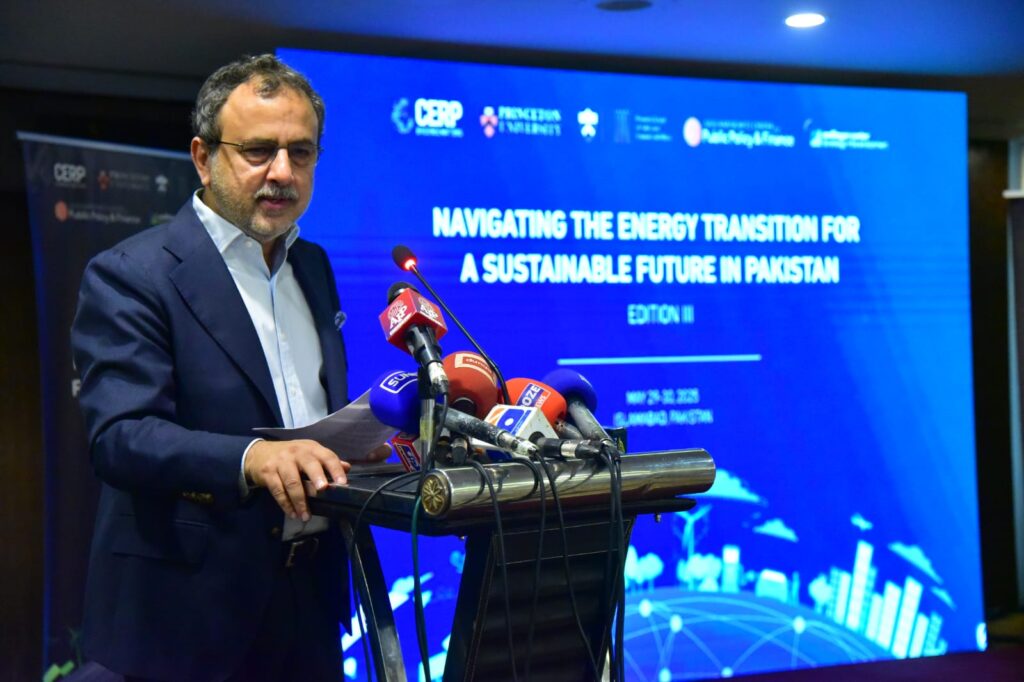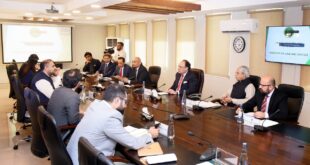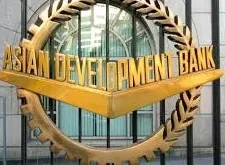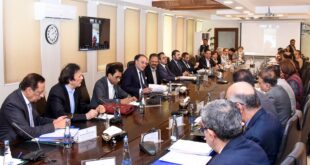
Aftab Maken
ISLAMABAD
Prime Minister Shehbaz Sharif is expected to soon unveil a new scheme aimed at curbing the chronic issue of electricity overbilling, Federal Energy Minister Awais Khan Leghari told the National Assembly’s Standing Committee on Power. The initiative — “Apna Meter, Apni Reading” — will allow consumers to send in their own meter readings via a mobile app, giving them direct control over billing accuracy.
The minister’s assurance came during a meeting of the parliamentary committee, chaired by Muhammad Idrees, which convened to examine electricity tariffs and assess the performance of power distribution companies (DISCOs).
While the new billing scheme promises relief in the long term, consumers hoping for an immediate reduction in tariffs may be left disappointed. NEPRA Chairman made it clear that there is little likelihood of power rates coming down any time soon.
The committee proceedings saw pointed questions from lawmakers over the unequal distribution of relief across sectors. PML-N’s Rana Muhammad Hayat questioned whether the upcoming fiscal year would bring any tariff reductions, highlighting that while the industrial sector has seen a 30% cut, the agricultural sector remains untouched.
Responding to this, Power Division Secretary said the industrial relief was a result of eliminating cross-subsidies, and that the government is working on a broader restructuring plan for the power sector.
In a rare moment of candour, PTI’s Junaid Akbar slammed distribution companies for operational failures. “Four months ago, I offered to personally help remove illegal kundas (unauthorised connections). We’ve been cooperating, but the losses from line thefts remain unchanged. Consumers suffer hours-long outages, and the public blames us for the mess,” he said.
PESCO CEO assured the committee that improvements were in the pipeline and credited local cooperation for expected betterment starting next month. However, Leghari interjected that such relief measures must be rolled out monthly — not annually — and directed SDOs to ensure implementation.
Defending the government’s relief measures, Leghari said power costs for consumers using up to 100 units had been slashed by 56%, while those in the 101–200 unit slab were receiving a 48% cut. He added that subsidies are being integrated with the Benazir Income Support Programme (BISP), although he acknowledged that the BISP database needs to be updated. The government, he clarified, does not plan to alter the current slab system.
The minister also made a high-stakes claim, stating that the government’s decision to terminate Independent Power Producer (IPP) contracts had resulted in public savings of Rs 3.4 trillion. “We’ve initiated the journey toward affordable electricity,” he said.
In a separate disclosure, the Power Division secretary said that household billing has not been conducted in the former FATA areas since 2008. Annual losses from this billing vacuum range between Rs 20 to 30 billion. Although electricity is technically available, it is supplied only for basic needs — and only when the federal government picks up the bill.
Meanwhile, addressing a workshop on power sector reforms on Thursday, Leghari claimed that Pakistan is undergoing a transformation in alternative energy. He noted that a year-long review of the IPP regime, alongside continuous research and policy evaluations, had started to bear fruit in the form of falling electricity prices.
The minister also confirmed that the federal cabinet has instructed a re-evaluation of the net metering policy. “Stakeholders will be engaged, and their input will shape the final version of the policy,” he said. The revised policy will be presented to the cabinet for approval.
Leghari reiterated that industrial power tariffs had been cut by 30 to 32%, while around 18 million domestic users are now receiving up to 50% in relief.
The committee meeting also included a procedural slip-up, with member Raja Qamar-ul-Islam pointing out that he had mistakenly received minutes from the Petroleum Division rather than the Power Committee — a bureaucratic blunder that raised eyebrows but was swiftly brushed aside.
 BeNewz
BeNewz




